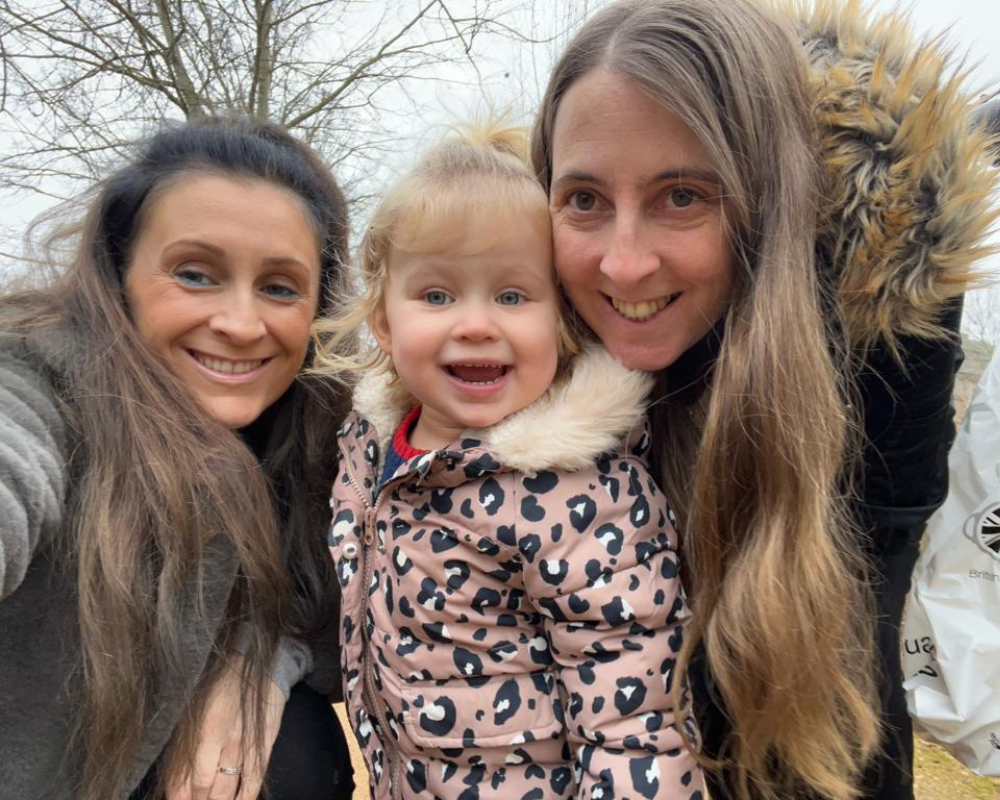Being a mum means living the impossible dream
The option of having a family
My partner Murielle and I have been together for 10 years, and we’d both always wanted to have a family. But we didn’t think this would be possible in our youth, as it was a very different time growing up gay in the 80's, 90's and early 2000's.
However, due to the advancements of gay rights and changes in laws, we knew having a family could be an option for us by the time we got together in 2013.
Starting IVF
Our first cycle of IVF was scheduled for March 2020 but was cancelled because of the Covid lockdown and clinic closure (good fun!). Fortunately, we were able to resume our treatment in June 2020.
We got pregnant, but I started to feel period-like symptoms and knew something was wrong. We had our first loss at 5 weeks in July 2020. We then had another 2 losses – our second at 6 weeks in November 2020, and our third at 5 weeks again in February 2021.
After the third miscarriage, our IVF clinic finally classed my case as that of 'recurrent miscarriage'. We didn’t receive any support but were advised to get further tests done, which we did.
Our twin pregnancy
In 2021, we got pregnant again and found out we were expecting twins.
I found most of my pregnancy quite difficult. This was largely due to the anxiety and worry because of the losses we had endured. I was also very sick up until about 16 weeks (morning, noon and night!).
At around 8 weeks, I had sudden bleeding, which was terrifying. We’d had a viability scan just 1 week earlier, which had shown both embryos had heartbeats and looked fine at the time. But at 8.5 weeks, we lost one of the twins.
Losing one of our babies, known as 'vanishing twin syndrome', only served to heighten our worry and fear. The twin showed up on our scans until 20 weeks, at which point they’d been reabsorbed and only an empty sac remained.
Élise
The end of my pregnancy was also difficult - I had very bad swelling and could hardly walk. I ended up being induced at 41 weeks and 3 days and because of complications, I had to have an emergency c-section. After a 36-hour labour, our daughter Élise was born.
Our baby wasn’t breathing when she was born, so was taken straight to NICU. It wasn’t the best of experiences, but we were forever grateful throughout the pregnancy and in a constant state of disbelief. We just couldn’t believe we were going to have a child. We felt so incredibly lucky.

Dealing with grief
My mum was beyond brilliant when we had our losses. It was a difficult time due to all the Covid lockdowns. We couldn't go out anywhere throughout much of our treatment as we were shielding and had to be very careful. But my mum and I went on many socially distanced walks and she was (and still is) the best listener in the world.
We were also part of the fantastic IVF / TTC community on Instagram. We met so many incredible friends in the online community who were wonderfully supportive throughout our journey.
Advice for others
My advice for others would be: be selfish when going through such difficulties. You don’t have to be the ‘good friend’ and attend baby showers. Look after yourself first. Also, push for medical intervention if it’s not already being provided.
What being a mum means to us
To us, being a Mum means living the impossible dream. Every day we look at our daughter and just can't believe she is here. Everything we do, from small things to big things, all just seem surreal.
We’re grateful for all our IVF journey taught us; we really wouldn’t be the same parents, or people, we are today if it had worked first time. We hope our daughter doesn’t have to endure the same difficulties we did if she chooses to have a family of her own one day; but, if she does, we are ready to support her 100%. The struggle really is part of the story.
